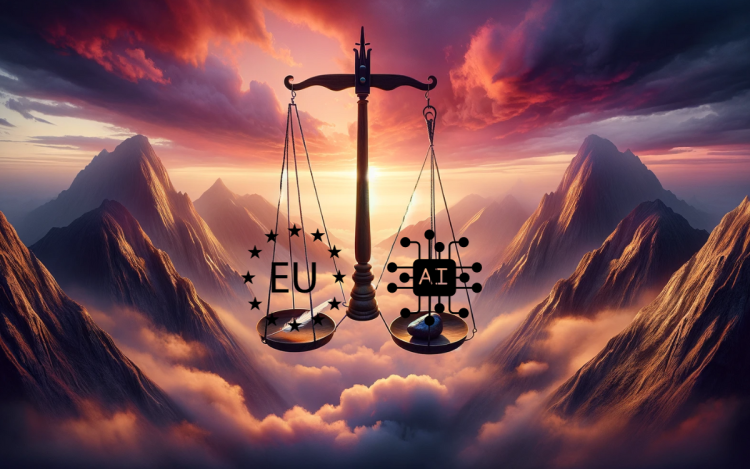The EU AI Act, which has been poised to become landmark comprehensive AI legislation, is currently facing challenges in its final stage of negotiations. The main point of contention revolves around the regulation of ‘foundation’ models, or AI models trained on a massive scale. The French, German, and Italian governments have advocated for limited regulation of these models, which has raised concerns about the influence of Big Tech and open-source companies. This debate has sparked a power struggle that threatens to undermine the EU AI Act.
On one side of the argument, proponents of including foundation models in the regulations argue that exempting them would have negative implications for public safety and European businesses. In a joint open letter, a group of German and international experts in the field of AI and prominent AI researchers, including Geoffrey Hinton, Yoshua Bengio, and AI critic Gary Marcus, expressed their concerns about the potential risks associated with these models. French experts have also spoken out against attempts by Big Tech to weaken the legislation.
On the other side, those in favor of limited regulation believe that restricting foundation models would hinder commercial profit potential and limit open innovation opportunities. This perspective prioritizes the development of artificial general intelligence (AGI) and raises questions about the balance between profit and safety.
The Roadblock in the Final Stretch
The EU AI Act has been in its final stage of negotiations, called the trilogue, where EU lawmakers and member states discuss the bill’s details. However, the legislation has reached a roadblock due to conflicting interests and fundamental beliefs regarding AI. This deadlock resembles the recent drama at OpenAI, where debates revolved around commercial profit opportunities versus concerns about AI safety.
Just as at OpenAI, the EU AI Act debates reflect different perspectives on the potential risks and benefits of AI. The EU lawmakers and member states must navigate the complex terrain of balancing profit potential, innovation, and the need to address existential risks associated with AI technologies.
The Implications and Future of the EU AI Act
The fate of the EU AI Act hangs in the balance as negotiations continue. The European Commission aims to vote on the legislation before the political impact of the 2024 European Parliament elections. However, the ongoing disagreements and time constraints create uncertainty about the Act’s future.
Some analysts argue that an agreement should be reached as time is pressing, given the upcoming trilogue in December and the changing Presidency. The failure of the EU AI Act would be a setback for the EU, which has positioned itself as a global pioneer in AI regulation. It remains to be seen whether compromises can be made, ensuring a balanced approach that addresses both profit potential and potential risks.










